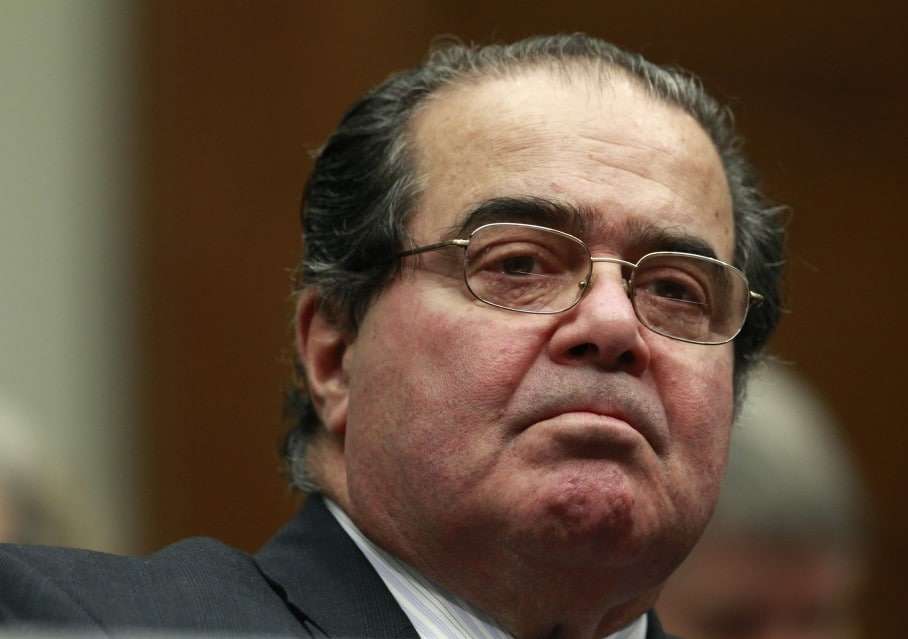The Volokh Conspiracy
Mostly law professors | Sometimes contrarian | Often libertarian | Always independent
Justice Antonin Scalia, R.I.P.

Supreme Court Justice Antonin Scalia passed away unexpectedly earlier Saturday. He was the senior associate justice on the Court, and possibly its best-known conservative. Few experts would deny that he was one of the most important and influential Supreme Court justices of the last several decades.
Scalia's most significant legacy is his insightful defense of originalism in constitutional theory and textualism in statutory interpretation. Both textualism and originalism have far more support today than they did back when he was first appointed to the Court, thirty years ago. Significantly, some of that support crosses ideological lines, as a new generation of liberal originalists has emerged in the academic world, and left of center judges resort to originalist arguments considerably more often than they did a generation ago. While the rise of originalism and textualism has many causes, some of that progress is undoubtedly due to Scalia's forceful and effective advocacy.
Scalia's views on textualism are well-summarized in his book A Matter of Interpretation. His famous article "Originalism: The Lesser Evil" is probably his best-known defense of originalism (see also this critique by Randy Barnett).
While Scalia's views on judicial methodology have had widespread influence, many of his opinions on specific legal issues remain highly polarizing, often admired by conservatives but hated by many liberals. Critics argued that his reasoning was flawed in various ways, and that he did not always follow his own methodological commitments when it was inconvenient to do so. In some areas, such as his opinions in affirmative action cases, he did not even try to make originalist arguments for his positions, even though there is a serious originalist case for striking down seemingly "benign" racial preferences. I myself differed with Scalia on a number of important issues, such as the constitutionality of laws banning same-sex marriage, and whether Congress has the power to ban the possession of medical marijuana that had never crossed state lines or been sold in any market.
But whether you agree with his views or not, it is hard to think of any other recent Supreme Court justice who has made a comparably great contribution to debates over both statutory interpretation and constitutional theory. It may be a long time, if ever, before we reach any consensus about Scalia's legacy. But its importance cannot be denied.
Since Scalia's passing occurred in the last year of the Obama administration, it is likely to generate a major fight over the confirmation of his successor. The Obama administration may try to seize this opportunity to tilt the balance of power on the Court, which, until Scalia's passing had a narrow 5-4 conservative majority. The Republican-controlled Senate, by contrast, might seek to delay any confirmation vote until after the results of the November election become evident. If the next president is a Republican, the GOP would surely want him to be able to name Scalia's replacement instead of Obama.
I will likely have more to say about the future of the Supreme Court in later posts. But today, it is more appropriate to focus on remembering and honoring Justice Scalia's legacy. I extend condolences to Justice Scalia's family, friends, and professional colleagues.
UPDATE: I put up this post before seeing co-blogger Jonathan Adler's recent post on the same subject, which went up just a few minutes before this one.
UPDATE #2: Robert Barnes of the Washington Post has a detailed obituary here.
UPDATE #3: Senate Majority Leader Mitch McConnell just said that the Senate will not consider the nomination of any possible successor until after the November election:
Republican Senate Majority Leader Mitch McConnell said on Saturday that the next U.S. president should be the one to nominate a justice to fill the vacancy left on the Supreme Court by the death of Antonin Scalia.
"The American people should have a voice in the selection of their next Supreme Court justice. Therefore, this vacancy should not be filled until we have a new president," McConnell said in a statement.


Show Comments (0)